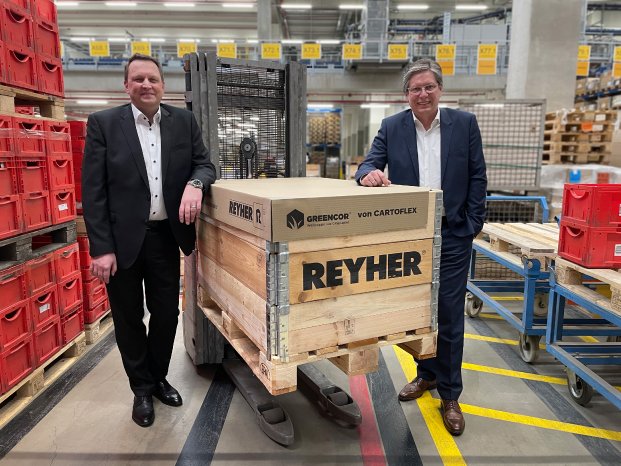The corrugated cardboard from GreenCor®, is an innovative resource-conserving development by packaging producer CARTOFLEX, based in Lüneburg, Germany. The special feature of the packaging material is that it consists of around one third grass. The remaining 70% of the corrugated cardboard is made up of recycled material.
Production reduces the use of energy, water and chemicals
The production of grass paper differs in practice only a little from conventional paper production. In addition to used paper, grass fibres are pulped with water. Next, water is removed from the suspension and the fibres build a fleece. In contrast to fresh fibre or recycled fibre processes, grass fibre can be produced purely mechanically. This considerably reduces the use of water and energy during the process. The use of chemicals can also be radically reduced. The danger of allergies is removed due to the special production process using both high pressure and high temperatures.
Raw materials from the region
The grass used for the pallets required comes from Schleswig-Holstein, a region of north Germany, from local farmers and their grass compensation areas. These areas must be created because of increasing soil sealing. The managed grasslands have to be mowed twice a year. Because of the length and strength of the woody grass it is not suitable for animal fodder and so there is no competition with fodder production.
“Cartoflex has supplied us reliably with quality high-value packaging materials for many years,” reports REYHER CEO, Klaus-Dieter-Schmidt. “We are very pleased that thanks to this innovative development we can make an extra contribution towards saving valuable resources and reducing the use of chemicals.”


